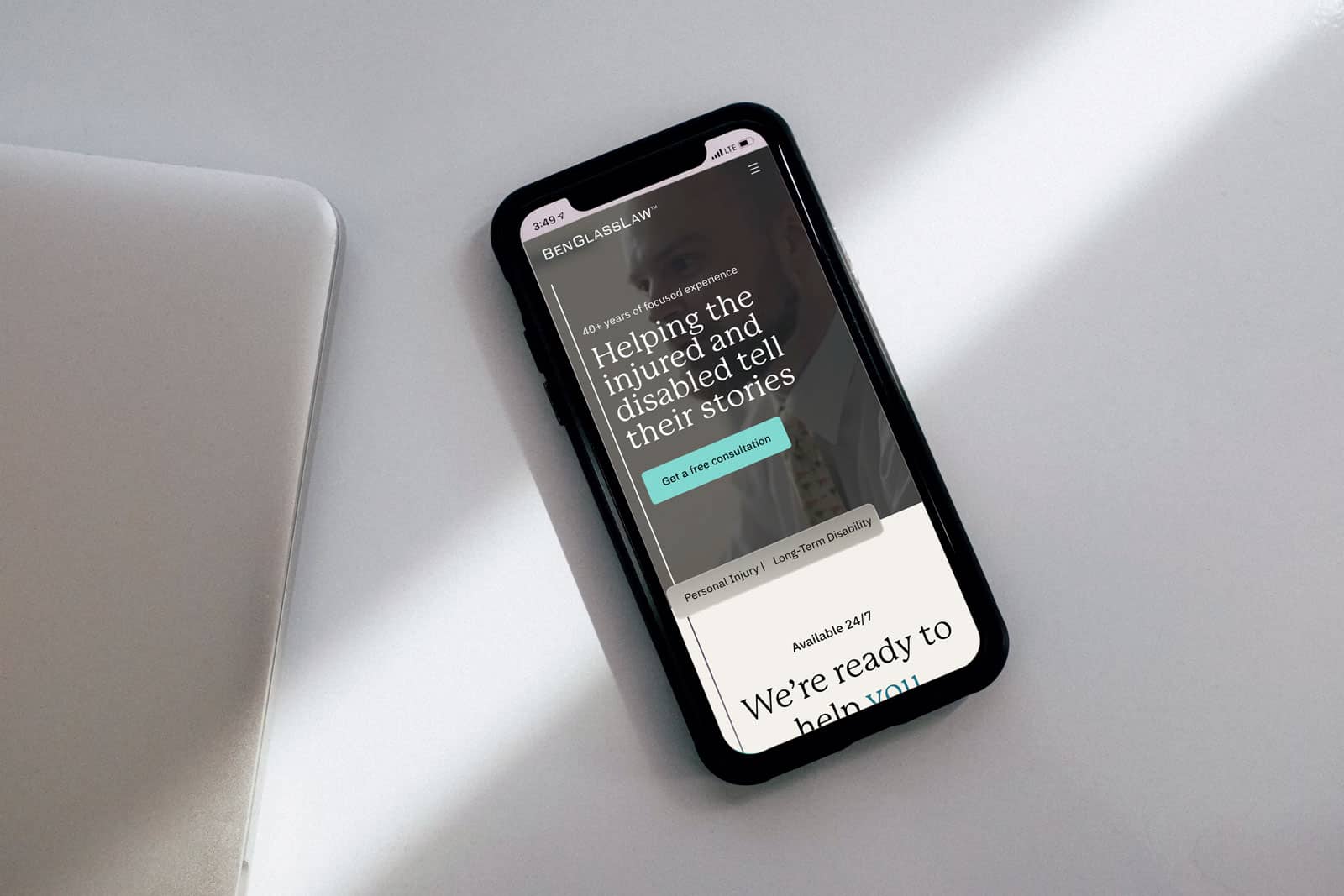Everyone Knows Quality Online Copywriting Is Essential
By now, most businesses know they need a content marketing strategy of some kind. “Content is king,” “content marketing is the new SEO,” and other catchy aphorisms have hammered that point home.
But effective content marketing requires more than just creating content. It requires outstanding copywriting on your webpages, in your ads, throughout your blog, and in your emails.
In short, top-notch copywriting is the foundation for every meaningful online interaction with your potential clients and customers.
RELATED: Client Marketing Strategy Meetings and the Success of Content Marketing: LaFleur Service Highlights
But No One Reads Website Content, Right?
Actually, people do read it, which is why having high-quality web copywriting is so important for your business.
Unfortunately, two opposing ideas are very popular right now, and both are backed with robust data:
- Content is one of the most important parts of your online business model.The proof? Content marketing leaders experience almost 8 times (780%) more growth in website traffic over other businesses.
- People don’t read your content.The proof? Approximately 55% of site visitors spend less than 15 seconds on a webpage.
Obviously, they can’t both be true.
So what’s going on? I’ll be honest: a lot of people don’t read your content. (A lot of people aren’t going to read this article, either.) But those people probably aren’t in your target audience of potential clients and customers. Assuming you don’t have a website that looks like it was built in 1997 and your copywriting is good (or even great), the people who leave your site are disqualifying themselves as potential leads. They were just looking for a specific piece of information, they accidentally clicked on your site, they don’t need your services or products, etc.
Most people are clever enough to know once they’ve found what they were looking for (probably within about 15 seconds), and no amount of clever headline writing or compelling copywriting is going to convince someone who doesn’t need your products and services that they suddenly do. You’re not writing for them.
Instead, you’re writing for people who do need you. And they are going to devour your content. Even the much-maligned Millennials are going to read it. In fact, Millennials read even more than older generations. They read more books (88% of those under age 30 have read a book in the last year compared to 79% of those over 30), and they read more online (Young adults aged 15-24 years spend 50 minutes a day reading compared to just 32 minutes per day for those aged 25-64).
Good Website Copywriting Drives Engagement, While Bad Content Pushes Your Potential Clients and Customers Away
When your writing connects with your audience, they latch on to your brand:
- They sign up for your newsletter.
- They call your office.
- They email you.
- They follow you on social media and share your content.
- They come back to your website.
- They talk to their friends about you.
Most importantly, they trust you with their business.
But here’s the problem: bad copywriting actively pushes those people away. Here are a few common problems we often see in website copy:
- SEO copywriting created for search engine robots, not actual people.
- Awkward, unnatural phrasing that people struggle to understand.
- Huge walls of text that are not structured for online readers.
- All the right words in all the wrong places.
- Industry jargon that potential clients and customers don’t know.
- Typos. So many typos.
- A consistent lack of unified purpose across webpages.
Below, I’ll explain exactly how to fix most of these problems so you can actively engage with your audience through your copywriting.
RELATED: Why Write? The Relevance of Good Writing in the Internet Age.
Improve Your Copywriting Skills Today. Here’s How!
When I occasionally teach college writing classes, I encourage my students with some simple advice: “write to express, not to impress.” Determine what your main point is, jot down a few important points you absolutely need to cover, put them in some kind of logical order, and start writing.
While you write, think of your piece as a conversation with someone from your target audience. You don’t have to impress them, you have to communicate with them. You’re not writing the next great American novel, you’re writing a candid note to a real person who needs more information about something that you’re highly qualified to talk about.
You can sort out the details of SEO, reading level, and conversion optimization later. First, you need an authentic, helpful, and in-depth piece of written content.
Get that first draft done, and as you refine, ask these important questions:
- Can you provide a concrete example?
Good copywriting becomes great when ideas are complemented with concrete examples. Above, I could have just told you that good copywriting helps people engage. Instead, I did that and provided specific examples of what engagement looks like. I even did it in an easily-skimmable bulleted list, which is something online readers love.
- Can you be more clear and succinct?
It’s okay to fumble around in a first draft, but your copywriting will be more effective when you take out the fluff and keep delivering interesting content in every section. Here’s an example I work through with my students:
The color of the barn that was old was red.
That’s a complete sentence. It’s grammatically correct (the subject is “color” and the verb is “was”). There’s nothing overtly wrong with that sentence, but it’s not succinct. Here’s what you can do with 10 words instead:
The old, red barn started burning with Dave stuck inside.
Now we’ve got a short story using only 10 words.
Good copywriting moves forward with purpose, and it tells a story whenever it can.
- Is your copy actionable?
Readers don’t want to simply receive information. They want tangible insights they can apply to their unique situation. Don’t hold back crucial information someone needs just because you think they won’t call you if you provide too many details.
Here’s an important secret about great copywriting: people will call you because you provide them with everything they need. Writing a comprehensive, accurate answer to a question shows your expertise. It builds trust. It proves you’re confident and secure in your knowledge, skills, and abilities. It makes people want to call you instead of trying to do it by themselves.
- Have you accomplished the purpose of your piece?
In the course of writing a draft, you might get caught up on certain details only to forget the real reason you’re putting fingers to keyboard. Make sure your copywriting accomplishes its goal on every page.
Do you want people to sign up for your newsletter? Make sure you let them know, and make sure there’s a way to do it integrated with the copy.
Do you want visitors to contact you? Tell them why they should, and tell them how they can do it.
Do you want your audience to visit other pages? Make it clear what pages you want them to visit, and make sure the links are working!
The best way to make sure your copywriting is effective and successful is to have at least one other person take a look at it before it goes live on your website. If possible, you should implement a detailed editorial process for creating content that ensures and increases quality at every step.
LEARN MORE: Our Editorial Process for Creating Truly Outstanding Website Content
Where Do You Start? Some Pages Are More Important Than Others
Good copywriting takes time. In fact, it takes a lot of time. Focus your efforts on your most important pages first. Known as “cornerstone content,” “content pillars,” or just “VIPs” (very important pages), this content is crucial for your business objectives.
Whether you are creating brand new pages for your website or you already have them in place, these pages should be your primary focus for outstanding copywriting:
- Home page — Your home page is the virtual storefront of your business and will likely rank higher than most of your other pages for a wide variety of searches. Visitors should be highly engaged with your home page content, and it should give them a clear sense of who you are, what you do, and how you can help them.
- Top service pages and/or top-selling product pages — Your top service and/or product pages should compel people to hire you or make a purchase. You may want to break into new services or sell a new product to drive new profits, but you don’t want to do that at the expense of your bottom line. Consider where most of your revenue comes from, and make sure your copywriting on those pages is incredible so they will keep delivering.
- Your contact page — When most people visit your contact page, they’re almost ready to start working with you. Your copy can make them feel like it’s time to reach out now — or send them packing. Get your contact page content right.
- High-converting blog posts and landing pages — If you have blog posts, infographics, ebooks, or other resources that already outperform the rest, make sure they are dynamite. You can build on their success by honing the copywriting on these pages to encourage visitors to reach out and contact you.
Every page needs great copywriting, but if you have to choose, prioritize those pages, and then start working on new pages.
Some On-Page Content Is More Important, Too
Not all copywriting is created equal in the eyes of Google or your audience. When you’re considering where to devote most of your copywriting effort on any given page, make sure these things are all the best they can be:
- Title tag
- Meta description
- Headings (h1s, h2s, etc.)
Luckily, we have a comprehensive blog post about how to make sure your on-page copywriting is truly outstanding and search-engine friendly. It was written specifically for law firms, but the information applies to everyone:
READ MORE: How to Improve SEO on Your Law Firm’s Website Today
Ultimately, Great Copywriting Requires Skill, Knowledge, and Experience
Most people can write. Few can write well.
Those who write well dedicate time to each of their pieces. They make a habit of writing better, even in places like instant messages, text messages, or social media posts. They read critically with a focus on how authors get their message across. They have been trained and mentored by successful writers and editors. And they have bona fide qualifications that attest to their writing skills.
I’m confident that everyone can become a better writer, but not everyone has the time or energy to devote hours, days, and years to their craft to become an outstanding writer.
Save Time With LaFleur’s Brilliant Copywriting Services
What’s the most common struggle that law firms, businesses, and healthcare organizations face when they are trying to implement their content marketing strategies? Time — they just don’t have enough of it. Maybe you’ve made the same excuse: “If I just had more time, I could write more for the website.”
Creating brilliant website copy doesn’t have to take any of your time, though. When you work with LaFleur, our uniquely qualified and experienced staff of writers, editors, and certified SEO specialists will do all the heavy lifting for you. From assembling keyword research for a brand new website to launching complex, multi-audience content marketing campaigns across multiple platforms and properties, LaFleur can meet all of your copywriting needs and more!
Give us a call at (888) 222-1512 or take a quick second to fill out our convenient contact form. We’d love to talk about how we can put our copywriting and content marketing expertise to use for your business!
References
Carter, S., Cox, A., Quealy, K., & Schoenfeld, A. (2009, July 31). How different groups spend their day. The New York Times. Retrieved from http://www.nytimes.com/interactive/2009/07/31/business/20080801-metrics-graphic.html
Creating content is a waste of time – Until you have mapped the buyer journey Part 3: Match and mix content, channel and lifecycle. (2015, March 18). Aberdeen Essentials. Retrieved from http://www.aberdeenessentials.com/cmo-essentials/creating-content-is-a-waste-of-time-until-you-have-mapped-the-buyer-journey-part-3-match-and-mix-content-channel-and-lifecycle/
Haile, T. (2014, March 9). What you think you know about the web is wrong. Time. Retrieved from http://time.com/12933/what-you-think-you-know-about-the-web-is-wrong/
Zickuhr, K., & Rainie, L. (2014, September 10). Younger Americans and public libraries. Pew Research Center. Retrieved from http://www.pewinternet.org/2014/09/10/younger-americans-and-public-libraries/





